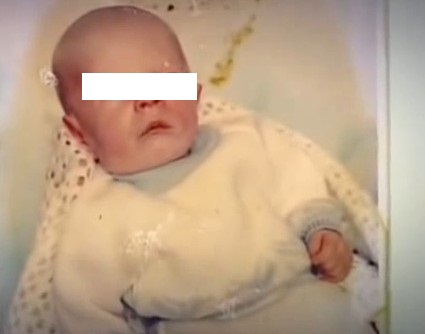Prader-Willi syndrome is a rare congenital disease marked by diverse physical, mental, and behavioral deficits. Affected children tend to suffer from insatiable hunger pangs, after they turn a year old. This unique feature persists for the lifetime of the patient.
Continuous eating to quell the hunger pangs results in drastic weight gain, obesity, and varied other health problems, most of which are obesity-related complications. Effective management of the associated signs and symptoms require the expertise of a variety of specialists; they also help prevent the onset of medical complications arising due to Prader-Willi syndrome.
Symptoms of Prader-Willi syndrome
The signs and symptoms associated with Prader-Willi syndrome generally appear in two phases.
Stage I – During the first year of an infant
- Hypotonia, i.e., poor muscle tone is evident. Babies with Prader-Willi syndrome may feel floppy like rag dolls when held in the hands. The elbows and knees are loosely stretched thereby posing difficulties in resting comfortably.
- Distinctive facial characteristics like almond-shaped eyes, a head which tapers near the temples, a downward-drooping mouth, and a thin upper lip are clearly visible.
- Affected babies have a weak cry, respond poorly to stimulation, and elicit abnormal exhaustion and problems in waking from sleep.
- A weak sucking reflex caused due to poor muscle tone can eventually result in feeding problems. Babies with Prader-Willi syndrome are thus slow to gain weight and may not thrive normally and completely.
- Strabismus, i.e., an ocular condition characterized by lack of coordinated movement between the eyes may also be noticed. The eyes tend to be cross or may wander towards the sides.
Stage II –Between ages one to four years
- There is poor or deficient physical growth and development. In addition to overall diminished muscle mass, the hands and feet may be shorter than usual. Adults with Prader-Willi syndrome are therefore usually shorter as compared to other family members.
- Affected toddlers generally exhibit delayed motor development; they typically achieve varied developmental milestones later than normal. Sitting upright without help may take 12 months, while walking may occur only after 24 months or even more.
- Infants will continuously crave food resulting in dramatic gain in weight. Affected children remain hungry even after large meals and hence eat numerous times and more frequently. They may also elicit abnormal food seeking manners like hoarding food or consuming garbage or frozen food.
- Absent or minimal secretion of sex hormones by the ovaries or testes results in hypogonadism. This can then cause stunted growth during puberty and immature sex organs. Women patients may start their menstrual cycles only when they reach their thirties or they may never have periods. Affected men feature minimal or nil facial hair; their voices don’t deepen completely. Infertility is a common feature in all individuals with Prader-Willi syndrome.
- There may be delayed speech development. Affected infants may commence speech only after 2 years. Diction deficits and other speech issues may continue.
- All individuals with Prader-Willi syndrome may exhibit mild to moderate cognitive deficits. Even patients with no significant cognitive impairment may elicit some kind of learning disability.
- A large percentage of children with Prader-Willi syndrome may suffer from scoliosis, i.e., abnormal spinal curvature.
- Temper tantrums and increased aggression, especially when food is denied, obstinacy, and other behavioral issues are evident. OCD may be prevalent; it may cause irrelevant recurring thoughts or repetitive actions and behaviors, or both. Other mental problems like skin picking, rectal gouging, etc., may also occur.
- Some children affected by Prader-Willi syndrome may elicit sleep disorders such as disturbed sleep cycles, and sleep apnea, etc. These problems can become worse with underlying obesity.
- Nearsightedness, high levels of tolerance for pain, and paler skin than relatives are other common symptoms of Prader-Willi syndrome.
Causes
Prader-Willi syndrome is a genetic congenital condition caused due to presence of error in genes, or in a particular gene. The exact causative gene or genes are currently not known. Studies have however shown that the culprit gene occurs in a specific region of chromosome 15.
It may be noted that, with the exception of the sex genes, all genes occur in pairs; one copy of the gene is passed on from the father while the other is inherited from the mother. Both copies are typically expressed or active. Some gene types may however continue working with the expression of just one copy.
Prader-Willi syndrome is caused due to the non-expression of some paternal genes which should normally be active. This may occur due to:
- Passing of 2 chromosome 15 copies from the maternal side and none from the paternal side.
- No chromosome 15 gene copy is inherited from the father.
- Chromosome 15 associated paternal genes may be mutated, with errors, or defective.
The genetic defect linked to Prader-Willi syndrome is responsible for causing malfunction of the hypothalamus. Hypothalamus is that area of the brain which controls hunger, thirst, and other bodily functions. It also releases certain hormones which help in growth and development of a child.
Thus, hypothalamus dysfunction caused due to genetic errors associated with Prader-Willi syndrome, eventually results in the occurrence of the unique signs and symptoms associated with the syndrome, such as limitless hunger, stunted growth, and sexual immaturity, etc.
Treatment of Prader-Willi syndrome
The abnormalities in infants with Prader-Willi syndrome are treated in the below listed manner:
- Metabolism is improved via growth hormone treatment. This in turn helps reduce body fat, enhance growth, and boost muscle tone.
- Hormone replacement therapy can help overcome the effects of diminished levels of sex hormones. The therapy also minimizes the vulnerability of Prader-Willi syndrome patients toosteoporosis development.
- OCD, mood disorders, and other psychiatric problems are treated by mental health professionals.
- Malnutrition in babies arising due to feeding problems can be resolved via intake of a high-calorie formula. Infants will thus gain the needed amount of weight. As they grow older, a low-calorie healthy diet can help avoid obesity.
- Physical therapy can help improve motion; speech therapy can help develop and enrich verbal skills and articulation; and occupational therapy can teach vital everyday skills necessary for living a non-dependent life.
Adult patients typically require specialized care and supervision for their lifetime.
Pictures



Prader-WillI Syndrome – Life Expectancy
The good news is that in the past few years, the life expectancy of people with Prader-Willi Syndrome has increased. According to a study, it has been found that cardiovascular diseases, bone-related problems, diabetes and skin disorders are common among the elderly with PWS (above 50 years of age). Functional decline and psychiatric problems may also set in, hinting at premature aging among Prader-Willi Syndrome patients. Special medical attention is needed among patients above 40 years of age with care and supervision of possible areas of decline, so that natural longevity of life is ensured.